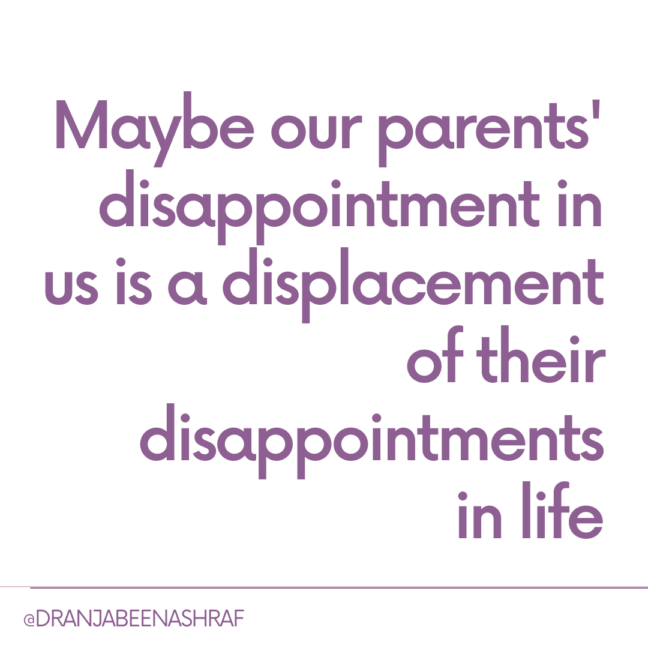How do we deal when our parents express disappointment in us, particularly for children of immigrants? Do we accept it? Do we reject it? Do we meet somewhere in the middle? Here’s why this is important to think about.
Children of Immigrants
As children of immigrants, we might often hear about the disappointment of our parents. This might ring especially true during our developmental years but even in adulthood, we are not immune.
Why do parents tell us they are disappointed in us?
All of us have dreams, hopes, wishes, and aspirations for our lives. What happens when we are disappointed because we don’t gain or achieve those goals or aspirations?
If we don’t sit with it, grieve, and process our disappointments we might pass those on as expectations to our children or youth. Expectations might be received as pressure. Certainly not for all but for many.
Of course, parents can set expectations for their children and that is appropriate parenting. What I am asking us to sit with is: when disappointment happens, from where does it arrive? What place within us as parents? Going to the start of this process, where do the expectations come from?
And, importantly, how do we communicate this disappointment? Is this used as a form of control? Manipulation? We then come back to: what place within us is this coming from?
For those of us on the receiving end, this recognition may be helpful. Even if our parents do not have access to recognize this, perhaps our recognition can help us to heal, ourselves and intergenerationally.
Does this ring true for you? What would you add to this?
Therapy for Children of Immigrants in Oregon and Online
Are you tired of thinking, “Log kya kahenge (what will people say)”, having arguments via text message, posting mysterious social media statuses hoping that one person will read them, serotonin loading on the humane society’s website, or being confused about what boundary setting means? If so, we can help!

